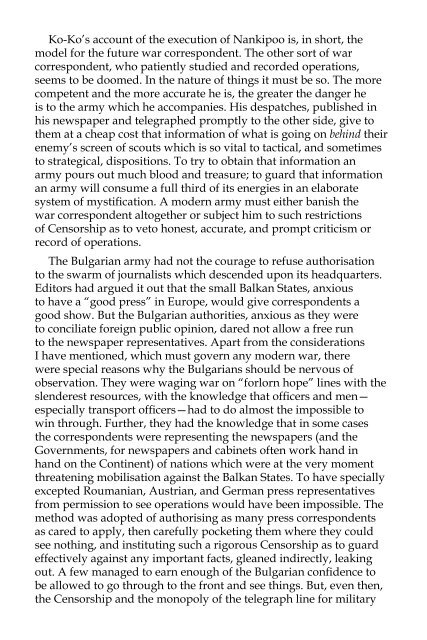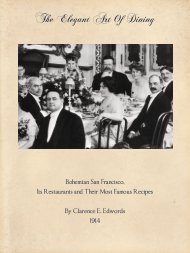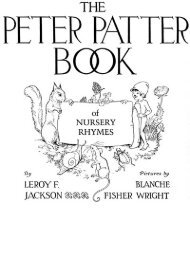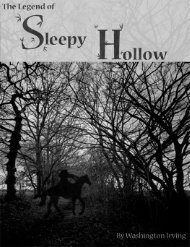Bulgaria e-book - iMedia
Bulgaria e-book - iMedia
Bulgaria e-book - iMedia
Create successful ePaper yourself
Turn your PDF publications into a flip-book with our unique Google optimized e-Paper software.
Ko-Ko’s account of the execution of Nankipoo is, in short, the<br />
model for the future war correspondent. The other sort of war<br />
correspondent, who patiently studied and recorded operations,<br />
seems to be doomed. In the nature of things it must be so. The more<br />
competent and the more accurate he is, the greater the danger he<br />
is to the army which he accompanies. His despatches, published in<br />
his newspaper and telegraphed promptly to the other side, give to<br />
them at a cheap cost that information of what is going on behind their<br />
enemy’s screen of scouts which is so vital to tactical, and sometimes<br />
to strategical, dispositions. To try to obtain that information an<br />
army pours out much blood and treasure; to guard that information<br />
an army will consume a full third of its energies in an elaborate<br />
system of mystification. A modern army must either banish the<br />
war correspondent altogether or subject him to such restrictions<br />
of Censorship as to veto honest, accurate, and prompt criticism or<br />
record of operations.<br />
The <strong>Bulgaria</strong>n army had not the courage to refuse authorisation<br />
to the swarm of journalists which descended upon its headquarters.<br />
Editors had argued it out that the small Balkan States, anxious<br />
to have a “good press” in Europe, would give correspondents a<br />
good show. But the <strong>Bulgaria</strong>n authorities, anxious as they were<br />
to conciliate foreign public opinion, dared not allow a free run<br />
to the newspaper representatives. Apart from the considerations<br />
I have mentioned, which must govern any modern war, there<br />
were special reasons why the <strong>Bulgaria</strong>ns should be nervous of<br />
observation. They were waging war on “forlorn hope” lines with the<br />
slenderest resources, with the knowledge that officers and men—<br />
especially transport officers—had to do almost the impossible to<br />
win through. Further, they had the knowledge that in some cases<br />
the correspondents were representing the newspapers (and the<br />
Governments, for newspapers and cabinets often work hand in<br />
hand on the Continent) of nations which were at the very moment<br />
threatening mobilisation against the Balkan States. To have specially<br />
excepted Roumanian, Austrian, and German press representatives<br />
from permission to see operations would have been impossible. The<br />
method was adopted of authorising as many press correspondents<br />
as cared to apply, then carefully pocketing them where they could<br />
see nothing, and instituting such a rigorous Censorship as to guard<br />
effectively against any important facts, gleaned indirectly, leaking<br />
out. A few managed to earn enough of the <strong>Bulgaria</strong>n confidence to<br />
be allowed to go through to the front and see things. But, even then,<br />
the Censorship and the monopoly of the telegraph line for military<br />
messages prevented them from despatching anything.<br />
Some of the correspondents—one in particular—overcame a<br />
secretive military system and a harsh Censorship by the use of a<br />
skilled imagination and of a friendly telegraph line outside the area<br />
of Censorship. At the staff headquarters at Stara Zagora during the<br />
early days of the campaign, when we were all straining at the leash to<br />
get to the front, waiting and fussing, he was working, reconstructing<br />
the operations with maps and a fine imagination, and never allowing<br />
his paper to want for news. I think that he was quite prepared to<br />
have taken pupils for his new school of war correspondents. Often he<br />
would come to me for a yarn—in halting French on both sides—and<br />
would explain the campaign as it was being carried on. One eloquent<br />
gesture he habitually had—a sweeping motion which brought his<br />
arms together as though they were gathering up a bundle of spears,<br />
then the hands would meet in an expressive squeeze. “It is that,” he<br />
said, “it is Napoleonic.”<br />
Probably the Censor at this stage did not interfere much with<br />
his activities, content enough to allow fanciful descriptions of<br />
Napoleonic strategy to go to the outer world. But, in my experience,<br />
facts, if one ascertained something independently, were not treated<br />
kindly.<br />
“Why not?” I asked the Censor vexedly about one message he had<br />
stopped. “It is true.”<br />
“Yes, that is the trouble,” he said—the nearest approach to a joke<br />
I ever got out of a <strong>Bulgaria</strong>n, for they are a sober, God-fearing, and<br />
humour-fearing race.<br />
The idea of the <strong>Bulgaria</strong>n Censorship in regard to the privileges<br />
and duties of the war correspondent was further illustrated to me<br />
on another occasion, when a harmless map of a past phase of the<br />
campaign was stopped.<br />
“Then what am I to send?” I asked.<br />
“There are the bulletins,” he said.<br />
“Yes, the bulletins which are just your bald official account of<br />
week-old happenings which are sent to every news-agency in Europe<br />
before we see them!”<br />
“But you are a war correspondent. You can add to them in your<br />
own language.” Remembering that conversation, I suspect that at<br />
first the <strong>Bulgaria</strong>n Censorship did not object to fairy tales passing





